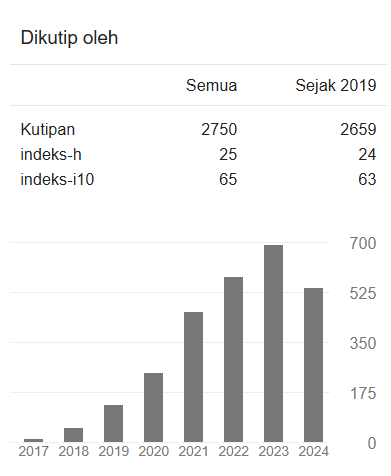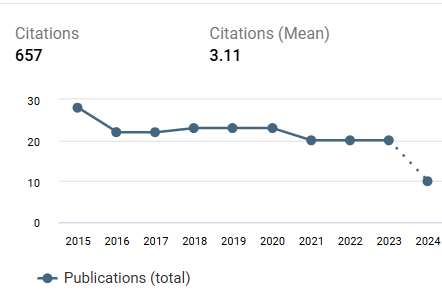Penerapan Strategi Discovery Learning (DL) Untuk Meningkatkan Keterampilan Berpikir Kritis Dan Pemahaman Konsep IPA
DOI:
https://doi.org/10.22219/jinop.v3i1.4317Keywords:
Discovery Learning (DL), critical thinking skills, and competence of the concept of science,Abstract
Abstract:
This research aims to describe the learning process of cooperative Discovery Learning (DL) in science subjects in relation to improving critical thinking skills and understanding of the concept of 9th grade students of SMPN 2 Kota Blitar.
This research is designed in several cycles so that the ultimate goal of learning can be fulfilled, namely the improvement of critical thinking skills and understanding of science concept of 9th grade students. Instruments used in the implementation of the action are test, RPP, LKPD, and observation sheet.
The Instruments are used for data collection are: observation sheet and paper test. Observation sheets are used to collect data on the implementation of the learning process by students and teachers, while the paper test is used to capture data about critical thinking skills and the students competence of science concepts. The data analysis used is descriptive statistical analysis which describes sample in real condition with form of tables, graphs, and explanatory diagrams.
The Conclusions and suggestions from the results of this study are: 1) DL needs to be implemented in science subjects as an effort to improve the quality of learning in SMPN 2 Kota Blitar; 2) DL needs to be implemented in science subjects as it can improve critical thinking skills and the students competence of science concepts, 3) DL strategy easier to implement in science because DL is similar with scientific method. In the 2013 curriculum.
Keywords: Discovery Learning (DL), critical thinking skills, and competence of the concept of science,
Abstract:
Penelitian ini bertujuan untuk mendeskripsikan proses pembelajaran kooperatif Discovery Learning (DL) pada mata pelajaran IPA dalam kaitannya untuk meningkatkan keterampilan berpikir kritis dan pemahaman konsep siswa kelas 9 SMPN 2 Kota Blitar.
PTK ini dirancang dalam beberapa siklus sehingga tujuan akhir pembelajaran dapat terpenuhi, yaitu peningkatan keterampilan berpikir kritis dan pemahaman konsep IPA siswa kelas 9. Instrument yang digunakan dalam pelaksanaan tindakan adalah tes, RPP, LKPD, dan lembar observasi.
Instrument yang digunakant untuk pengumpulan data yaitu: lembar observasi dan dan tes. Lembar observasi digunakan untuk mengumpulkan data tentang keterlaksanaan proses pembelajaran oleh siswa maupun guru, Sedangkan test digunakan untuk menjaring data tentang keterampilan berpikir kritis dan pemahaman konsep siswa. Analisis data yang digunakan adalah analisis statistik deskriptif yang menggambarkan kondisi sampel sebagaimana adanya dalam bentuk tabel, grafik, dan diagram penjelasan.
Simpulan dan saran dari hasil penelitian ini, yaitu: 1) DL perlu diimplementasikan dalam mata pelajaran IPA sebagai upaya meningkatkan kualitas pembelajaran di SMPN 2 Kota Blitar; 2) DL perlu diimplementasikan dalam mata pelajaran IPA karena dapat meningkatkan keterampilan berpikir kritis dan pemahaman Konsep siswa, 3) strategi DL relatif mudah penerapannya dalam IPA karena sangat mirip dengan Saintifik metode. Dalam kurikulum 2013.
Kata kunci: Discovery Learning (DL), keterampilan berpikir kritis, pemahaman Konsep IPA
Downloads
Downloads
Published
How to Cite
Issue
Section
License
Copyright Notice
Authors who publish with JINoP (Jurnal Inoasi Pembelajaran) agree to the following terms:
- For all articles published in the JINoP (Jurnal Inovasi Pembelajaran), copyright is retained by the authors. Authors give permission to the publisher to announce the work with conditions. When the manuscript is accepted for publication, the authors agree to the automatic transfer of the publishing right to the publisher.
- Authors retain copyright and grant the journal the right of first publication with the work simultaneously licensed under a Creative Commons Attribution 4.0 International License. that allows others to share the work with an acknowledgment of the work's authorship and initial publication in this journal.
- Authors are able to enter into separate, additional contractual arrangements for the non-exclusive distribution of the journal's published version of the work (e.g., post it to an institutional repository or publish it in a book), with an acknowledgment of its initial publication in this journal.
- Authors are permitted and encouraged to post their work online (e.g., in institutional repositories or on their website) prior to and during the submission process, as it can lead to productive exchanges, as well as earlier and greater citation of published work (See The Effect of Open Access).








